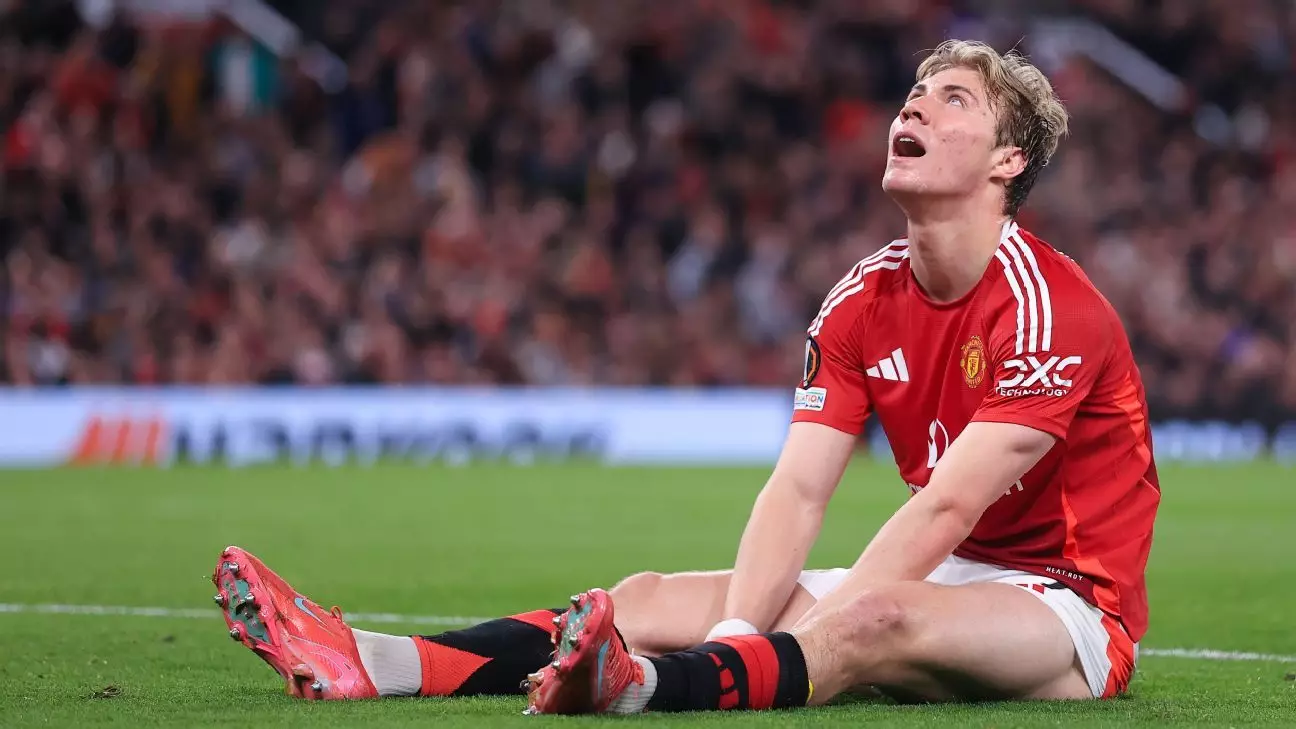In the unpredictable realm of football transfers, where emotions run high and fortunes change overnight, few clubs have navigated this tumultuous landscape as notoriously as Manchester United. Under the tenure of former executive vice-chairman Ed Woodward, the team’s transfer strategies often drew criticism, particularly regarding inflated prices and miscalculations. As Woodward sought transfer targets with release clauses to simplify negotiations, the club’s management still faced challenges that were far from trivial. The allure of securing high-profile talent like Antoine Griezmann ultimately faded, revealing an ongoing struggle to align ambition with financial pragmatism.
Griezmann, for instance, exemplified an attractive target in 2017; the prospect of paying a known release clause offered clarity in an opaque market. Yet, when the time came, these straightforward negotiations were clouded by competing priorities from then-manager José Mourinho. The failure to secure such a coveted player highlighted a broader issue within Old Trafford: the disconnect between management’s financial strategy and the managerial vision for player acquisitions.
As Ed Woodward stepped down in 2022, he left behind a legacy of mixed fortunes. Yet, with the announcement of Matheus Cunha’s presence at Manchester United—triggered by a release clause from Wolverhampton Wanderers—one could argue that the club is finally embracing a model that might mitigate previous pitfalls. Cunha’s arrival not only signals a smart operational move, balancing ambition and feasibility but also casts a hopeful light on the team’s tactical evolution under the helm of coach Ruben Amorim.
Navigating the New Landscape: A Shift in Strategy
The recent recruitment of Cunha has all the markings of a well-structured approach to player transactions. With his proven performance in the Premier League and an established familiarity with Amorim’s favored playing style, it’s a calculated risk that aligns with the need for offensive reinforcement. The operational ease afforded by the trigger of his release clause suggests that Manchester United is learning from its past mistakes, navigating the complexities of modern football more adeptly.
CEO Omar Berrada and director of football negotiations Matt Hargreaves appear to be steering the club towards a more streamlined process. Their negotiation of payment terms also reveals a newfound prudence; rather than succumbing to immediate financial pressures, they’ve opted for an installment plan. In a world where clubs often succumb to panic buying—instinctively chasing players with inflated valuations—the willingness to stand firm is a sign of progression.
The challenges of negotiating with clubs that perceive a “United tax” are not unique to Old Trafford. Several clubs—including Newcastle United—feel the brunt of increased price tags as a result of their financial prowess in the current landscape. Thus, Manchester United’s recent approach, characterized by its more disciplined spending, is commendable, especially when relics of previous indiscretions loom over the transfer market.
Learning from the Past: Avoiding Costly Mistakes
The sting of costly recruitment blunders looms large in the minds of Manchester United’s directors. The rash spending sprees of over £150 million on players like Casemiro and Antony are frequently cited examples of hasty decisions in the shadow of managerial panic. While football is rife with risks, the failure to be judicious has occasionally left the club with players who fail to deliver proportional returns on their hefty investments.
The onus is now on Berrada and his team to navigate this minefield carefully. The decision to walk away from negotiations with Everton over Jarrad Branthwaite was emblematic of this shift in mentality, reflecting a newfound confidence in prioritizing value over volume. With Berrada’s previous experience at Manchester City, where discarding overvalued targets became a hallmark of their strategy, there appears to be an awakening of stewardship at Manchester United.
The complicating variables remain ever-present, with the backdrop of financial constraints due to a lack of European competition looming. Future transfers, as indicated, would require a “disciplined” approach, where established price points guide negotiations. The potential pursuit of players like Bryan Mbeumo and Eberechi Eze underscores an ambition tempered with caution.
Future Outlook: Building a Resilient Squad
As Manchester United faces the challenge of recovering from one of their most disappointing domestic seasons, the pressure is palpable. With a squad in disarray, an emphasis on smart recruiting will be essential to restore their stature and competitive edge in English football. The approach taken by Berrada and his team represents not just a reconfiguration of tactics but a holistic change in the way the club positions itself within the footballing ecosystem.
Learning from past failures to create a more robust, resilient squad will be crucial in reclaiming Manchester United’s standing as a force in the Premier League. As the club continues to tread the line between ambition and practicality, the forthcoming transfer window will be a critical litmus test of their ability to make calculated investments that propel them forward—not just in terms of talent acquisition but also in restoring faith among fans and stakeholders alike.

